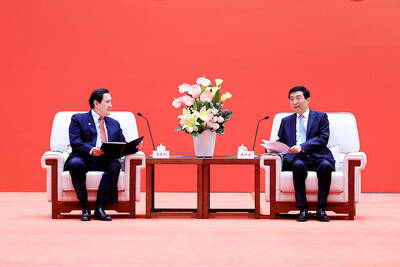It’s a slip of a thing, clocking in at a tight 90 minutes; a deft, light-footed amalgamation of two potentially formulaic comedy genres: the road movie and the mismatched buddy flick. But the second directorial venture from actor Jesse Eisenberg, which he also wrote and stars in, is considerably more than the seemingly slight sum of its parts. A Real Pain is a whip-sharp comedy driven by the rattling verbal sparring between uptight, neurotic David (Eisenberg) and his outgoing, unpredictable cousin Benji (Kieran Culkin).
It’s a notable step up for Eisenberg as a writer-director. His 2022 debut, When You Finish Saving the World, was an abrasive comedy of discomfort which, like A Real Pain, dug into the tensions between disconnected family members. There’s no such problem with A Real Pain: the writing is sublimely satisfying and textured, the characters persuasively realized, and the jostling, combative dialogue feels fully alive and refreshingly unpredictable, rather than a labored assortment of words on a page.
What undoubtedly helps is that there is so much of the essence of Eisenberg in the writing. The film, which follows two Jewish-American cousins on a trip to Poland to honor their recently deceased Holocaust-survivor grandmother, navigates Eisenberg’s own conflicted feelings about everything from generational trauma to Holocaust tourism (he has said in interviews that the initial inspiration for the film was an incongruous advert promising a “Holocaust tour, with lunch”). And while David is the more recognizably Eisenberg-esque character of the two — his performance is a jittery symphony of social discomfort, replete with tics and winces — the director also drew on his own life and experiences when writing the character of Benji, a gregarious, directionless stoner who still lives in his mother’s basement.

Photo: AP
That said, it’s hard to imagine Benji played by anyone other than Culkin, who brings a touch of his Succession character Roman Roy’s love-him-or-hate-him provocation and profanity, but gradually reveals a well of raw anguish and suffering under the glib insults and one-liners. It’s a career-defining performance for Culkin, and one that deservedly won him the Golden Globe for best supporting actor last week.
The charged bond between the cousins is the heart of the film. Close since childhood, theirs is a loving but conflicted relationship that, for reasons which become clear, has grown increasingly fraught of late. Equally revealing is the way they relate to the world around them. David loiters, painfully self-conscious, on the periphery of conversations; Benji plunges in with abandon and emerges with shared secrets and potted life stories.
For better or worse, Benji leaves a mark on the other members of the tour group; David barely registers as an afterthought. But the social ease with which Benji is blessed doesn’t mean that he is at peace as a person. Quite the opposite. The lack of filter that permits him to break the ice and bond with strangers also means that he lashes out indiscriminately — at the hapless British tour guide (a droll turn from Will Sharpe); at his cousin, for having the temerity to move on with his life and start a family; at his fellow travelers and the inherent tackiness of luxury trauma tourism.
Eisenberg’s soundtrack choices — the film plays out to busy, nervy piano pieces by Chopin — work neatly, providing a brisk rhythm for the metronomic editing of snapshots of modern-day Poland. The real power, though, comes when the bustling music stops and we finally start to grasp the terrifying emptiness and uncertainty that Benji faces.

The canonical shot of an East Asian city is a night skyline studded with towering apartment and office buildings, bright with neon and plastic signage, a landscape of energy and modernity. Another classic image is the same city seen from above, in which identical apartment towers march across the city, spilling out over nearby geography, like stylized soldiers colonizing new territory in a board game. Densely populated dynamic conurbations of money, technological innovation and convenience, it is hard to see the cities of East Asia as what they truly are: necropolises. Why is this? The East Asian development model, with

Desperate dads meet in car parks to exchange packets; exhausted parents slip it into their kids’ drinks; families wait months for prescriptions buy it “off label.” But is it worth the risk? “The first time I gave him a gummy, I thought, ‘Oh my God, have I killed him?’ He just passed out in front of the TV. That never happens.” Jen remembers giving her son, David, six, melatonin to help him sleep. She got them from a friend, a pediatrician who gave them to her own child. “It was sort of hilarious. She had half a tub of gummies,

The wide-screen spectacle of Formula One gets a gleaming, rip-roaring workout in Joseph Kosinski’s F1, a fine-tuned machine of a movie that, in its most riveting racing scenes, approaches a kind of high-speed splendor. Kosinski, who last endeavored to put moviegoers in the seat of a fighter jet in Top Gun: Maverick, has moved to the open cockpits of Formula One with much the same affection, if not outright need, for speed. A lot of the same team is back. Jerry Bruckheimer produces. Ehren Kruger, a co-writer on Maverick, takes sole credit here. Hans Zimmer, a co-composer previously, supplies the thumping

There is an old British curse, “may you live in interesting times,” passed off as ancient Chinese wisdom to make it sound more exotic and profound. We are living in interesting times. From US President Donald Trump’s decision on American tariffs, to how the recalls will play out, to uncertainty about how events are evolving in China, we can do nothing more than wait with bated breath. At the cusp of potentially momentous change, it is a good time to take stock of the current state of Taiwan’s political parties. As things stand, all three major parties are struggling. For our examination of the